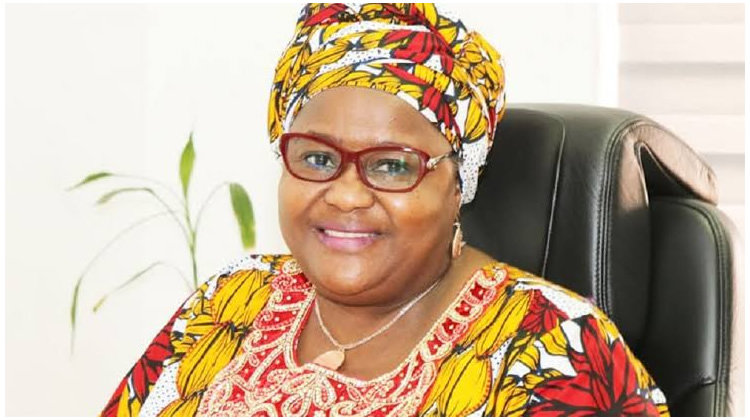
Despite the adoption of the Contributory Pension Scheme by some states, lack of funding by the governments has continued to drag its implementation, NIKE POPOOLA reports
About 19 years after the Contributory Pension Scheme commenced in the country, many states have yet to adopt it for their workers.
States that have adopted it have also welcomed it with little commitment which has continued to drag the essence of the scheme.
The CPS was introduced by the Pension Reform Act to provide regular pensions for both public and private sector workers in retirement.
States
According to the National Pension Commission, the regulator of the industry in its 2022 fourth quarter report, the number of states with laws on the CPS remained at 25 in the period under review.
PenCom explains that as of the end of 2022, “Seven states were at bill stage, five states had enacted laws on the Contributory Defined Benefits Scheme with two out of these five, i.e. Jigawa and Kano currently implementing the scheme (Kano is yet to transfer the pension assets to a Pension Fund Custodian though), while the other three– Gombe, Zamfara and Adamawa are yet to commence implementation of the CDBS.”
The regulator’s data shows that states that have enacted laws on the CPS are Lagos, FCT, Osun, Kaduna, Delta, Ekiti, Ondo, Edo, Benue, Kebbi, Niger, Rivers, Ogun, Bayelsa, Kogi, Anambra, Abia, Taraba, Imo, Sokoto, Ebonyi, Nasarawa, Enugu, Oyo and Bauchi states.
It notes that only 15 of them have pension bureau boards in line with the CPS, while states that have conducted actuarial valuation were only seven.
Among the states with CPS, 10 states have started remitting pension contributions; seven are funding the accrued rights of the workers, while only seven have commenced payment of pensions.
PenCom discloses that among the states that have not yet enacted laws on the CPS, seven are at the bill stage; they are Kwara, Plateau, Cross River, Borno, Akwa Ibom, Katsina and Yobe.
Payment delay
Despite the states’ enactment of the CPS, it is worrisome that the implementation level of most of them is low in all aspects.
Many of the states have backlogs of payments from their previous Defined Benefits Scheme and they are not regularly funding the CPS that they joined.
This has led to workers retiring but having to wait for several years before getting their payments.
For instance, PenCom disclosed that Lagos State Government has consistently failed to honour the N2bn monthly commitment to clear the accrued rights of its retirees.
This is despite the fact that Lagos has been recognised as one of the best pension states in the country.
PenCom’s report on Lagos states that, “As of the end of the 4th quarter of 2022, there was no record of the state fulfilling its monthly commitment of remitting N2bn for the months of October, November and December 2022.
“Only a total sum of N7.83bn was so far redeemed as against the expected sum of N26bn during the period. This therefore leaves a cumulative shortfall of N18.17bn that was yet to be redeemed as of the end of December 2022.”
Concerns
The Director, Centre for Pension Rights Advocacy, Ivor Takor, says it has been difficult for workers, pensioners and the general public to understand actions of governors who served their states for eight years, with most of them amassing stupendous wealth got through dubious means, as the Economic and Financial Crimes Commission cases against some of them have shown.
He says, “Some governors, among them, those who failed in eight years to enact laws to take care of pension of workers of states and local governments they superintended over, were able to within a short period, with the help of members of their ever ‘cooperative’ Houses of Assemblies to enact laws that guaranteed for them for life, bloated pension, allowances, which include houses, bullet proof vehicles, domestic helps and security personnel, as well as provisions for medical tourism, in the name of pension rights for political officeholders or whatever names so called,” he says.
Takor says it did not come as a surprise when criticism of the actions of these former governors became wide and diverse, coming from trade unions, pensioners, civil society organisations, lawyers and the general public.
He says, “Nobody should be left in doubt that some former governors have not been fair to workers, pensioners and taxpayers in the states they ruled as governors. The laws they got enacted at the tail end of their tenures as governors’ without addressing the issue of pension for workers of the state exposes them as being inconsiderate, selfish and lacking in fair play, equity and natural justice.”
He adds that, “Unfortunately, those who took over from them, whose responsibilities it is to redress the injustice by repealing the laws, either lack the courage/ political will or are looking at the other side because they are future beneficiaries.”
The Vice Chairman, The Federal Concerned Pensioners, Akinyele Oludimu, worries that, “The workers who worked are left in the cold unpaid. The government think so much of themselves but not thinking of the generality of the workers.
“I think the time has come that all these governors should be up and doing so that they will see the need why the workers must be paid their entitlement as at when due.”
Challenges
The Chairman/Chief Executive Officer, Achor Actuarial Services Limited, Dr Pius Apere, says that Nigerian pensioners have two basic expectations under the CPS which are, to have sustainable standard of living in retirement and receive their retirement benefits as and when due.
He notes that the Nigerian pension industry has been operating two pension regimes concurrently since 2004, namely the Pay-As-You-Go defined benefit scheme (the old unfunded pension regime); and the Contributory Pension Scheme under the Pension Reform Act 2014 as amended.
Apere says, “Currently, there are three categories of employees in the pension industry that will receive retirement benefits from either or both the two pension regimes.
“The first category consists of employees in the public service of the federation, Federal Capital Territory, states and local governments or the private sector who are expected to receive retirement benefits from only CPS.”
He adds that the second category of employees are exempted from the CPS as specified in section 5 of PRA 2014 (such as members of the armed forces, the intelligence and secret services of the federation among others); they will receive benefits only from the existing PAYG defined benefit scheme.
The third category, he notes, consists of public service employees (RSA holders with deferred pensioner status) in the CPS.
At the date of retirement, he explains, they are entitled to receive the accrued (past service) pension rights (determined by an actuarial valuation at the commencement date of the CPS) from both the existing PAYG defined benefit scheme and RSA balances from the CPS.
He observes an increasing apathy to the CPS.
“The delayed or inability of the Federal Government and/or state governments to remit the accrued pension rights to the individual retirees RSA on a timely basis had increased the plight of pensioners because the regulator insisted that the retirement benefits cannot be paid from RSA without the accrued pension rights being added to it,” he says.
Operators
The Chief Executive Officer, Pension Fund Operators Association of Nigeria, Oguche Agudah, says it is important to note that the CPS has in no small way, fostered a savings culture in Nigeria.
Prior to the enactment of the Act, he says, Nigeria did not have large pools of domestic savings.
“Many Nigerians do not have any other form of savings, except through this contributory pension scheme,” he says.
According to him, what the country should be doing is to encourage more of these savings rather than looking to dismantle the system.
“This is probably the only form of savings most Nigerian workers are able to put aside for their retirement years,” he notes.
The PenOp CEO recalls that during the era of President Olusegun Obasanjo, prior to the Pension Reform Act 2004, there were several committees to determine the best pension model for Nigeria.
He says, “Many countries were studied, cross cutting committees including labour, employers of labour, civil society groups, investment professionals and regulators were consulted to come up with the current system that we have now.
“Because of the foresight and the boldness of the reforms then, the pension industry in Nigeria grew from a negative position of about N 2tn to where we are now. We can boast of pension assets of N15.45tn spread across more than nine million Retirement Savings Accounts. These are monies that are funded and are in people’s retirement accounts.”
PenOp expects lawmakers to build upon these developments and see how the funds can be used to accelerate the development of the economy rather than pulling down years of reform.
“Lawmakers are meant to make laws in the interest of the general populace and not just themselves or narrow interests,” he says.
PenCom
The regulator body of the pension industry says it has however continued to intensify its efforts to deepen the CPS.
The Director-General, PenCom, Aisha Dahir-Umar, says it has intensified its sensitisation programmes in different states.
She disclosed in the 2022 last quarter report that, it organised sensitisation session on the workings of the CPS for staff of the Federal Teaching Hospital, Industrial Training Fund, the North-East Development Commission, and Government Science Secondary School, in Gombe State.
Same sensitisation was taken to Nigeria Immigration Service, Kwara State Command, Federal Inland Revenue Service, Federal Mortgage Bank, Ilorin, National Youth Service Corps members in Ilorin, Nigerian Deposit Insurance Corpoartion, Kwara State, Kwara Chamber of Commerce Industry Mines and Agriculture, Ilorin, Kwara State, Government High School, Adeta, Ilorin, Kwara State.
Other government bodies sensitised in the fourth quarter of 2022 were in the FCT, Kano, Lagos, Ogun, Anambra, and Cross River State.





